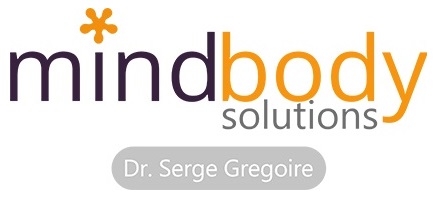Over 5 million Americans have been diagnosed with Alzheimer’s. Another 10,000,000 suffer with severe dementia and Parkinson’s. Even more struggle with age-related mild cognitive impairment. Here are 5 natural ways to defend your brain:
1. Bacopa Boosts Cognition
Bacopa monnieri (L.) is a traditional herb used for centuries in Ayurvedic medicine. It is prescribed as a memory and learning enhancer, a sedative, and anti-epileptic. In Australia, it is a popular memory aid for people over 60 years old.
Bacopa grows in the wet tropics and is also commonly known by its English name, water hyssop.
In a rigorous study published in the Journal of Complementary and Alternative Medicine, researchers found that Bacopa has positive effects on several measures of cognitive performance. In a randomized, double-blind, placebo-controlled clinical trial, they gave participants either 300 mg daily or a placebo pill. The subjects were 54 volunteers, 65 or older, without clinical signs of dementia.
After 12 weeks, those taking Bacopa improved their delayed recall memory, their reaction times, and their ability to ignore irrelevant information. Placebo recipients saw no change.
2. Ginkgo Biloba Improves Memory
For years ginkgo biloba has been linked to memory improvement. It acts as a free radical scavenger, protecting neurons from oxidation. It also improves microcirculation in the brain and reduces platelet aggregation.
Human studies show taking gingko biloba regularly can improve mental health, cognition, motor skills and quality of life. It’s particularly helpful for memory loss, attention, alertness, vigilance, arousal and mental fluidity.
3. Antioxidants Decelerate Brain-Aging
It’s clear that people eating a diet high in fruits and vegetables have fewer age-related diseases like Alzheimer’s. Eating more high-antioxidant foods such as berries, Concord grapes, and walnuts may enhance cognitive and motor function in older people.
Studies show supplementing with fruit or vegetable extracts high in antioxidants (e.g. blueberries, strawberries, walnuts, and Concord grape juice) helps decrease the vulnerability to oxidative stress that occurs in aging. That can lead to improvements in behavior.
4. Intermittent Fasting (IF) Regenerates Brain
Overeating is a risk factor for many age-related diseases including cognitive impairment.
Experimental models of Alzheimer’s disease, Parkinson’s disease, Huntington’s disease and stroke show that dietary restriction (reduced calorie intake) can beef up the resistance of neurons in the brain to dysfunction and death.
How? Dietary restriction stimulates the expression of ‘stress proteins’ and neurotrophic factors. Neurotrophic factors may protect neurons by increasing production of proteins that suppress oxidation and free radicals.
In addition, dietary restriction increases the number of newly-generated neural cells in the adult brain. In other words, it may increase the brain’s capacity for plasticity and self-repair.
Researchers suggest that limiting calories may reduce both the incidence and severity of neurodegenerative disorders in humans.
Intermittent fasting is not as difficult as it sounds. It doesn’t involve just drinking water. Most intermittent fasting plans cut calories to 25% of normal amounts. That’s about 600 calories for men and 500 calories for women on one or two days of the week.
5. Sleep Cleans Out Brain Toxins
A University of Oregon study shows middle-aged or older people who get six to nine hours of sleep a night think better than those sleeping either fewer or more hours.
Researchers used data involving more than 30,000 subjects in six countries. They found that individuals sleeping less than six hours and more than nine hours had significantly lower cognitive scores compared to those in the intermediate group.
The researchers used five standard cognitive tests involving immediate recall of a list of words, delayed recall of those words later, forward and backward recall of long lists of numbers, and a verbal fluency test in which they listed as many animals as possible without repetition, the use of proper nouns or descriptors.
One reason a good night’s sleep works is the brain’s trash removal system. During sleep the brain works 10 times as hard to remove toxic proteins like the ones responsible for Alzheimer’s damage. If you’re not asleep, the brain can’t get rid of plaques so easily.



